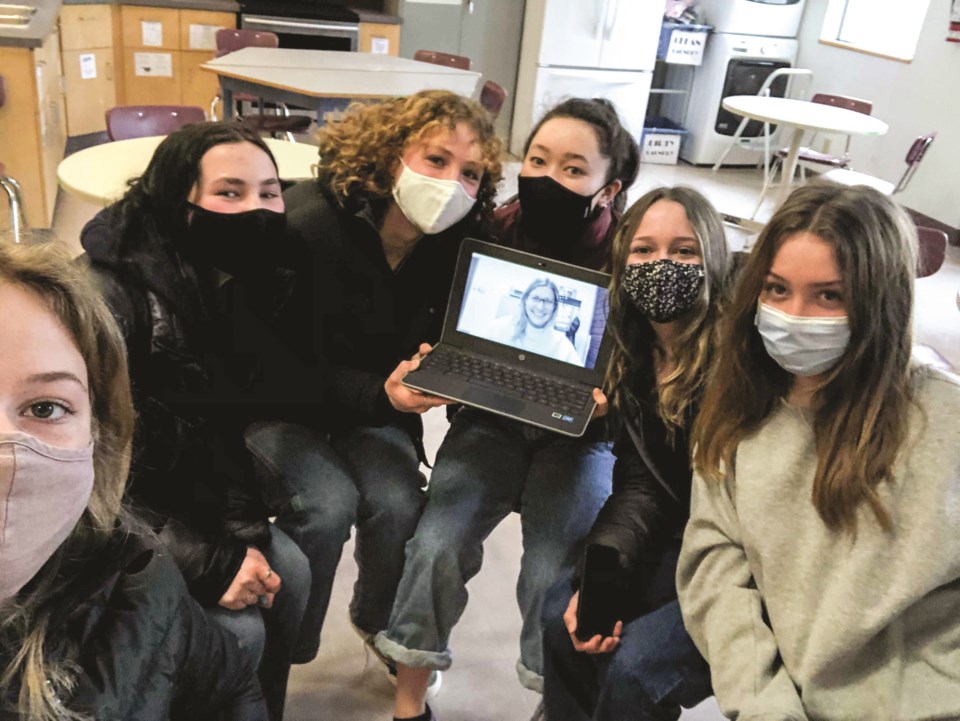Students at Whistler Secondary School, in partnership with the Association of Whistler Area Residents for the Environment (AWARE), are taking climate change awareness into their own hands with the Project Now initiative.
The program, now in its first year, started as an idea in 2019 between AWARE’s program coordinator, Taniell Hamilton and executive director, Claire Ruddy. Their goal was to get students from the Whistler Secondary School’s Eco Club more engaged in the cause and teach them real life skills along the way.
“One of the things I’ve seen is that there is this disconnect between people having ideas and then not knowing how to get their ideas off the ground,” explained Hamilton.
“So, what we wanted to do was create this mentorship program where students could come up with a project that they were passionate about, then through community mentors and leaders within Whistler, really foster those ideas and introduce them to different people in the community that might be able to bring them to life.”
Project Now consists of 27 students split into five groups each with the goal of addressing climate change in a different way. Projects include things like improving waste management and promoting healthy vegetarian eating habits in a positive way. Some are also raising awareness about the environmental impacts of fast fashion, as well as social media campaigns, and learning and understanding local policy and bringing that knowledge back to inform their peers on what’s happening in the community.
According to Sierra Haziza, president of the high school’s Eco Club and leader of the Erase the Waste group project, teaming up with AWARE has been incredibly beneficial to them both in giving them skills they can take forward into their future careers and helping them understand how changes are made at the community level.
“I’m actually hoping to pursue a career and an undergraduate education in sustainability,” said Haziza.
“So, what I’m really excited for is to take the skills that I’ve learned through my mentorship, so things like engaging different stakeholders in meetings, how to lead meetings and all of those skills, and really apply them and use what I learned in post-secondary [education]. I’m excited to have a future in climate action.”
Ruddy said the success of each group is defined by the students themselves and the goals they set for their projects, but they try to work under the same objective and set up each project to be “SMART: Specific, Measurable, Achievable, Realistic and Time-bound.”
As the school year starts to wrap up, the students are focused on raising awareness about their projects and engaging with as many people as they can. But however it turns out, whether they reach 10 people or 10,000, Haziza believes the program has already been a huge success.
“I think Project Now as a whole has already been incredibly successful just in the sense that Eco Club next year is going to have such strong connections and resources,” she said.
“But I think it’s also successful in the sense that the actual mentorships have taught [us] a lot about how to engage in different situations, and I think those are important tools to have.”
Ruddy intends for this program to continue next year with even more students involved. She also hopes people in the community take note of what these students are doing and take another step in reducing their own footprints as well.
“These students are going to live under the conditions that have been created by human-caused climate change for the longest,” said Ruddy.
“And so, the more we can do to support them to feel empowered and to act on climate, the better.”




